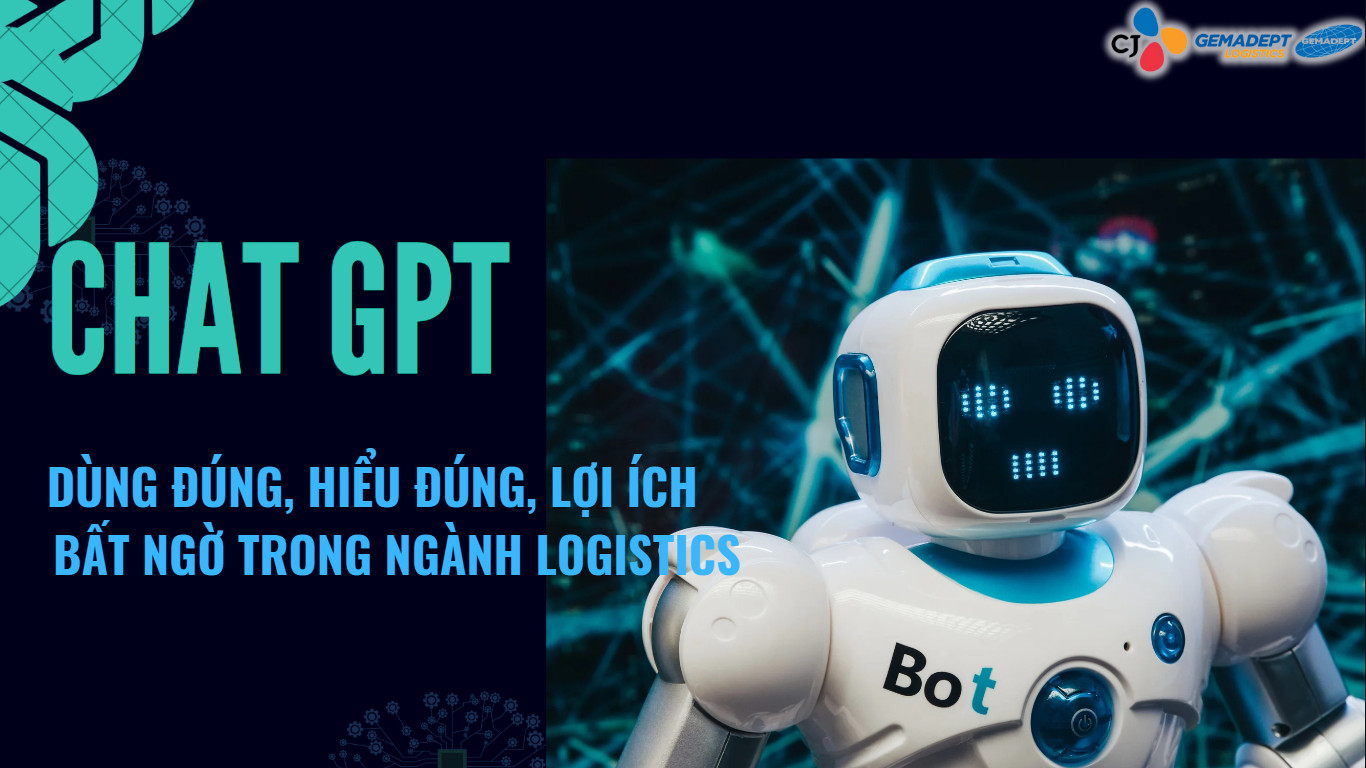Recently, ChatGPT - a versatile chatbot technology has gained significant attention on technology forums. It has been successfully applied in various fields and industries, including the logistics sector, where its applications have brought significant benefits, especially in certain operational groups. However, it is important to note that ChatGPT still has some limitations. To maximize its potential in the logistics operations of businesses, let's explore the detailed information in this news article and utilize ChatGPT effectively.
Chat GPT and benefits for logistics businesses:
 1. Marketing & Sales:
1. Marketing & Sales:
Chat GPT has the ability to automatically generate content, including writing PR articles, blogs, and advertisements on social media. Additionally, it can translate and create content for multilingual documents, compose emails to respond to customers, prepare presentation content, and collect information about customers and competitors. ChatGPT also supports market research, automated company service introductions, quick and automated 24/7 quoting, customer lead generation, data analysis, and quick reporting.
2. Customer Service:
Chat GPT enables logistics businesses to interact instantly with customers through platforms such as websites, mobile applications, or live chats. Customers can quickly and conveniently ask questions, request support, or retrieve information about logistics services. Moreover, with Chat GPT, logistics businesses can provide 24/7 customer support without incurring costs for overnight staff. This helps improve customer satisfaction and enhance competitiveness.
3. Internal solutions:
ChatGPT also supports businesses in implementing internal e-learning programs for personnel. It can provide guidance and instructions related to specialized knowledge, procedures, guidelines, policies, and regulations to employees automatically.
Limitations and potential risks of Chat GPT:
Although Chat GPT has outstanding abilities in providing information and natural language interaction, it also carries some limitations and potential risks. Here are some examples:
1. Lack of up-to-date information:
Chat GPT was trained on data up until 2021 and lacks the ability to self-update with the latest information. Therefore, if new events occur after that time, Chat GPT may not provide accurate information or lack awareness about them.
2. Inability to evaluate correctness:
Chat GPT cannot guarantee the accuracy of the information it provides. Although it can generate logical and reasonable answers, there is no mechanism to verify or evaluate the correctness of the information. Therefore, users need to assess and verify the information provided by Chat GPT themselves.
3. Susceptibility to misinformation:
Chat GPT was trained on internet-based data, and the internet does not always provide accurate and reliable information. If Chat GPT conveys misinformation or harmful content, users may be misled or influenced by it.
4. Lack of contextual understanding:
Although Chat GPT has the ability to read and generate natural language text, it lacks true understanding of context, intent, or emotions. This can lead to misunderstandings or inappropriate responses in complex situations.
5. Ethical risks:
Chat GPT lacks ethical judgment and may produce biased, harmful, or unethical content. Although measures have been taken to minimize this during the training process, complete control is still a challenge.
6. Privacy risks:
When using Chat GPT, there is a risk of disclosing personal or sensitive information. Storing and transmitting data during the interaction process can pose privacy risks without proper security measures in place
In conclusion, the use of Chat GPT should come with awareness of its limitations and potential risks. It cannot replace humans in evaluating information, verifying accuracy, and handling complex issues.
Considerations when applying Chat GPT in the logistics industry:
When applying Chat GPT in the logistics industry, there are several points to consider to avoid potential risks. To use Chat GPT fully, deeply, and effectively, logistics businesses need to clearly define the purpose of using Chat GPT and shape the data supply requirements that are suitable for customers and users.
Updating real-time data in the information system is crucial to best meet customer needs. Connecting this data to Chat GPT and fine-tuning the model according to the requirements of the logistics industry is necessary. Training Chat GPT based on the connected business data will ensure accurate and industry-specific answers, meeting the standards and requirements of the business.